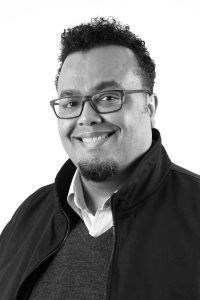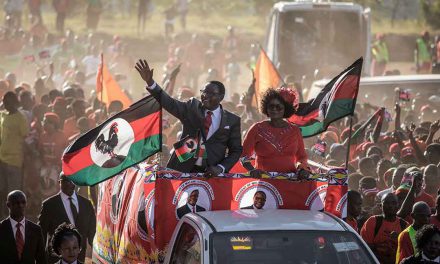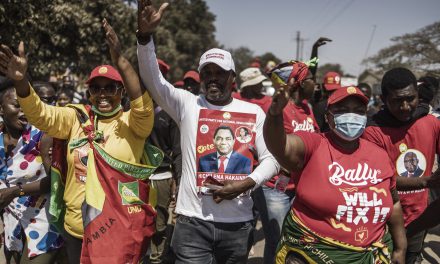Election Campaign Concerns
- Twitter and Facebook have suspended several Ugandan government officials and ruling party accounts due to alleged manipulation of public debate on the platforms. Fake and duplicate accounts were used to engage with users and make officials seem more popular than they are. The Ugandan government rejected the accusations.
- On Sunday 10th January, with only four days left to campaign, police arrested Forum for Democratic Change (FDC) candidate Patrick Amuriat. He was detained for an apparent traffic offence in the Mpigi District. Since his nomination to contest the elections, Amuriat has been arrested nine times.
Musician turned politician Robert Kyagulanyi, aka Bobi Wine, also a presidential candidate in the upcoming elections, speaks during a press conference in Kampala, Uganda, on January 12, 2021. (Photo by SUMY SADURNI / AFP)
Election Violence
- Bobi Wine’s campaign and security team were harassed and detained over the weekend by security forces. The home of Bobi Wine was raided the morning of 12th January and all personnel on the property were arrested.
- A massive military presence has begun to occupy to streets of Uganda’s capital Kampala as the country prepares to vote tomorrow. The Ugandan government has claimed the military deployment was due to fears of mitigating post-election violence. Kampala residents have expressed concerns about the large military presence and acts of intimidation.
- The U.S Embassy has issued a security alert to its citizens in Uganda to avoid election activity and remain vigilant over the follow days.
Internet and Social Media Shutdown
- In response to Facebook and Twitter’s account suspensions, Museveni ordered Uganda’s communications regulator to have the country’s internet providers block all social media platforms until further notice.
- On 11 January 2021, in a letter by the Committee to Protect Journalists (CPJ) and 54 other organisations called on Museveni to keep the internet connected during and after the polls.
A staff member gestures towards a screen displaying how a ballot paper should be marked during the upcoming elections at the electoral commission headquarters in Kampala, Uganda, on January 12, 2021. (Photo by SUMY SADURNI / AFP)
International Election Observers
- The short-term East African Community Election Observer Mission (EAC-EOM) began their duties yesterday morning after being deployed to various districts across the country. The Head of Mission Domitien Ndayizeye stated that the mission would be guided by the principles outlined in the African Charter for Democracy and the EAC’s Principles for Election Observation and Evaluation. He encouraged all political actors to avoid the incitement of illegal behavior and requested the media to exercise social responsibility.
- S. Ambassador Natalie E. Brown to Uganda issued a statement over the decision to cancel their diplomatic observation of election day. She states that “the Electoral Commission of Uganda denied more than 75 percent of the U.S. election observer accreditations requested.” There was no explanation given for denial of accreditations.
- European Union (EU) High Representative Josep Borrell expressed concern over the excessive use of force during the pre-election cycle in Uganda against opposition, civil society, journalists, human rights defenders and electoral experts. The EU did offer to send electoral experts, but this offer was not taken up.
- In view of the fact that several international observers won’t be deployed, the role of local observers will be even more important than before.











